Keywords: Offshore Detention
-

ARTS AND CULTURE
- Barry Gittins
- 20 April 2016
1 Comment
When you make a meal of body politic you've got to crack the whole thing open, season to taste with bestrewn flakes of policy offal and prejudged bakes ... serve offshore detention? Just add water, salt to taste and erase border. Grind those grubby unions, peel any sign of party donations and extractions from sorbeted cosseted carapaces. Stop the gloats, straighten up and get flyers Right ... Serve pre-heated post May's entree of budget salad.
READ MORE 
-

AUSTRALIA
- Kate Galloway
- 24 February 2016
4 Comments
It is right and good that the outpouring of community and professional goodwill has at least delayed the return of baby Asha to what are reported to be the terrible conditions of the detention centre on Nauru. But Australia's asylum seeker laws involve unresolved systemic issues that such wins cannot by themselves resolve. Widespread community focus on individual cases such as that of baby Asha may in fact prevent action on the deeper issues from gaining traction.
READ MORE 
-

AUSTRALIA
- Andrew Hamilton
- 18 February 2016
18 Comments
It is common for people to break the law. People fail to move on when instructed by police, evade tax, drive too fast, keep silent about abuse, trespass on military facilities, and drive when drunk. Many people assert that it is never right to break a law duly enacted by the government. From this principle it follows that anyone offering sanctuary to people who seek protection in Australia is acting wrongly. This blanket condemnation of law breaking runs against our inherited moral tradition.
READ MORE 
-
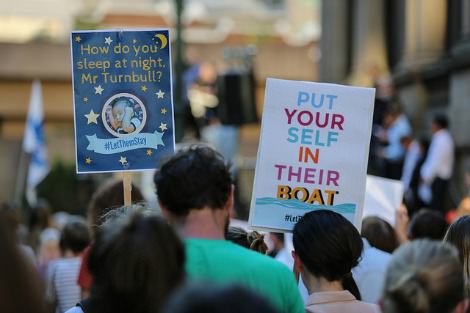
AUSTRALIA
- Somayra Ismailjee
- 12 February 2016
8 Comments
Since the first churches offered sanctuary to the refugees facing deportation to Nauru, a steady stream of voices have joined the call for compassion. As a political language, compassion is itself a reclamation of power. Extending safety, resources, or even a mere welcome to people in need proves that we have something to give. Strength is embodied by a capacity to aid and assist, rather than in cruelty. Empathy, care and compassion appeal to us on a level of emotion that runs deeper than mere rhetoric.
READ MORE 
-
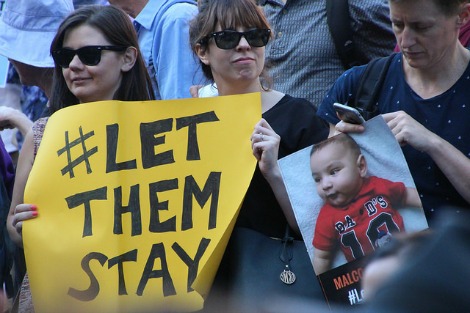
AUSTRALIA
- Andrew Hamilton
- 11 February 2016
15 Comments
The High Court decision on detention in Nauru came down just before the Christian season of Lent. It left the government free and determined to deport many young mothers and children to Nauru. For the mothers and children deportation will bring new trauma with renewed threat to their already precarious mental health. For the Australian public it again makes us ask what brutality, even to children, we are ready to tolerate. The savagery of this treatment is a suitable subject for Lenten reflection.
READ MORE 
-
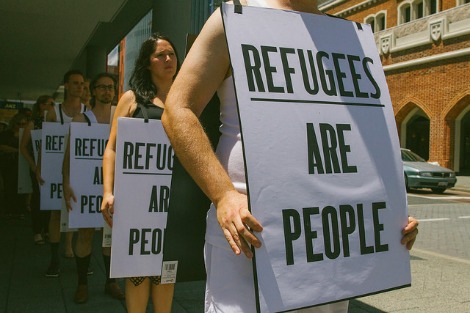
AUSTRALIA
- Kerry Murphy
- 05 February 2016
6 Comments
The practice of governments using the Parliament to change the law in order to win court cases is unfair, as only one party to a court case has the power to do this. The M68 case decided on Wednesday, which challenged the detention and transfer to Nauru of asylum seekers, was effectively won by the government because they changed the law retrospectively to make sure they would win. No retrospective fix will be possible for people who fled persecution only to face a punitive and hostile policy.
READ MORE 
-
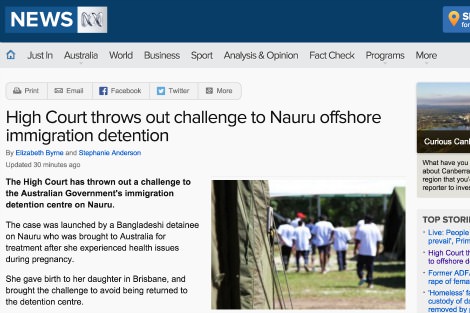
AUSTRALIA
- Frank Brennan
- 04 February 2016
24 Comments
Following Wednesday's High Court decision, the moral depravity of Australian funded offshore detention of asylum seekers, including children, is to continue. There is no joy to be found in our High Court applying a Constitution even more bereft of human rights protections than that of Nauru. It's time for our politicians to address the political and moral question: what purpose is actually served by sending this mum and her baby back to Nauru, when the boats have already stopped and will stay stop?
READ MORE 
-

- Frank Brennan
- 01 September 2015
1 Comment
If you want to form government in Australia and if you want to lead the Australian people to be more generous, making more places available for refugees to resettle permanently in Australia, you first have to stop the boats. If you want to restore some equity to the means of choosing only some tens of thousands of refugees per annum for permanent residence in Australia from the tens of millions of people displaced in the world, you need to secure the borders. The untrendy truth is that not all asylum seekers have the right to enter Australia but that those who are in direct flight from persecution whether that be in Sri Lanka or Indonesia do, and that it is possible fairly readily (and even on the high seas) to draw a distinction between those in direct flight and those engaged in secondary movement understandably dissatisfied with the level of protection and the transparency of processing in transit countries such as Malaysia and Indonesia. The popular evil is that political
READ MORE
-
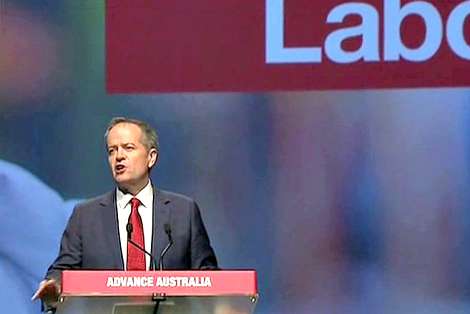
AUSTRALIA
- Kerry Murphy
- 28 July 2015
35 Comments
When refugee advocates criticise harsh policies such as boat turnbacks, they are confronted with claims that the measures are necessary for saving lives at sea. This justification has dominated the debate to the extent that any policy which further restricts refugee rights becomes justifiable on this ground. Imagine a proposal to ban cars because there were too many people killed and injured on the roads.
READ MORE 
-

AUSTRALIA
Steve Ciobo MP described Zaky Mallah’s terrorism acquittal as based on a 'technicality'. This was that the anti-terror laws enacted after his acquittal were 'not retrospective'. The truly frightening thing about retrospective laws is that they make conduct which is perfectly legal when it is done, criminal by fiat. Anyone can be convicted of anything retrospectively, and this is why it is forbidden in the constitutions of many countries.
READ MORE 
-

CARTOON
- Fiona Katauskas
- 10 June 2015
View this week's offering from Eureka Street's award winning political cartoonist.
READ MORE 
-

AUSTRALIA
All Australian states and territories have mandatory reporting legislation requiring compulsory disclosure of suspected child abuse by relevant professionals. The Australian Border Force Act requires the permission of the Secretary before any disclosure of criminal conduct is made to the relevant authorities. Should an Immigration professional who works with children fulfil their mandatory reporting obligations if this permission is not granted (and face two years in prison) or not?
READ MORE 